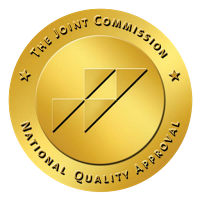Get Help With Your Addiction

What Classifies as a Drug Addict
Do you ever wonder if you or someone you know is a drug addict? Understanding what classifies as drug addiction can help shed light on this complex issue.
This article will explore key indicators, physical signs, and behavioral patterns of substance abuse. By providing knowledge and insight, our aim is to offer support and understanding to those affected, in a non-judgmental and empathetic manner.
Let’s dive in and unravel the truth about drug addiction together.
Key Indicators of Drug Addiction
If you’re wondering about the key indicators of drug addiction, there are several signs to look out for. Drug addiction not only affects the individual physically, but also has significant social consequences.
One key indicator is a decline in relationships and social connections. Addicts may withdraw from friends and family, prioritizing their substance use over meaningful connections. They may also experience financial difficulties and legal troubles, as the need for drugs takes precedence over responsibilities and obligations.
Additionally, drug addiction can have severe psychological effects. Substance abuse can lead to mood swings, anxiety, and depression, impacting overall mental well-being.
It’s important to approach the topic of drug addiction with empathy and understanding, as it’s a complex issue with a range of factors contributing to an individual’s struggle.
Physical Signs of Drug Dependency
You should be aware of the physical signs of drug dependency, as they can indicate a serious problem that requires immediate attention. It’s important to approach this topic with empathy and understanding, as individuals struggling with drug dependency need support and guidance.
Early intervention is key in helping these individuals overcome their addiction and regain control of their lives. Recognizing the physical signs of drug dependency, such as changes in appetite, weight loss, bloodshot eyes, and unexplained bruises or marks on the body, can help identify the problem early on.
Once identified, there are various treatment options available, including counseling, support groups, and medical interventions. Remember, addiction is a complex issue, and it’s vital to approach it with compassion and offer assistance to those in need.
Behavioral Patterns of Substance Abuse
You can observe the behavioral patterns of substance abuse through changes in social relationships and frequent mood swings. Substance abuse not only has physical effects but also psychological ones.
It can alter brain chemistry and lead to mood disorders such as depression and anxiety. These psychological effects can contribute to changes in behavior and personality, affecting relationships with family, friends, and romantic partners. Substance abuse often leads to strained relationships, as individuals may become unreliable, unpredictable, or even violent.
The impact of substance abuse on relationships can be devastating, causing trust to erode and communication to break down. Loved ones may feel helpless, frustrated, and hurt as they witness the person they care about struggle with addiction. It’s important to approach this topic with empathy and understanding, recognizing that substance abuse is a complex issue with deep-rooted psychological implications.
The post What Classifies as a Drug Addict appeared first on Sanctuary Recovery Centers.












